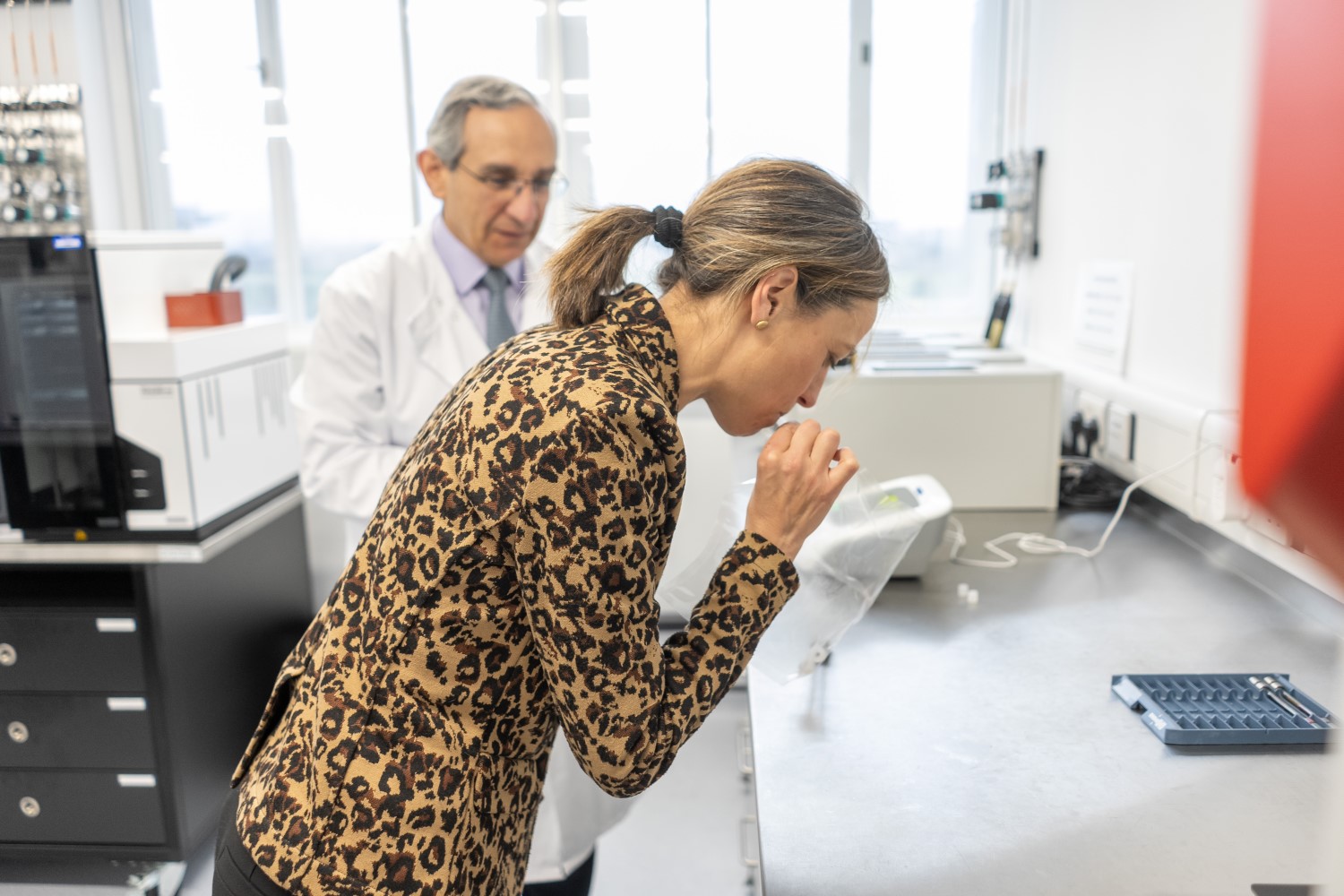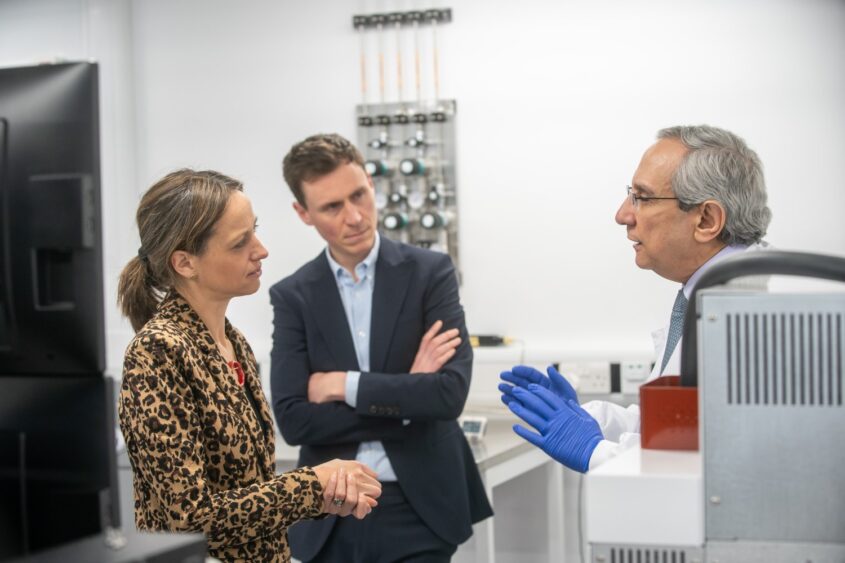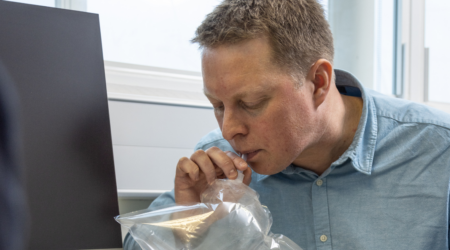

World-first pancreatic cancer breath test could save thousands of lives
We’re thrilled to announce that we are funding a new clinical study to develop a breath test that could detect pancreatic cancer early enough to save thousands of lives a year. In a world-first for the disease, a research team at Imperial College London led by Professor George Hanna are studying how breath samples taken in a GP surgery could ensure people with early pancreatic cancer symptoms, which are often mistaken for other less serious health conditions, are instead rapidly referred for scans and lifesaving treatment.
Minister for Cancer Helen Whately visited the lab to try the test for herself. There she met Professor George Hanna and our Head of Research, Dr Chris MacDonald, to find out more about this exciting work, as well as the challenges facing the pancreatic cancer research community.
"The earlier we catch cancer, the more likely we are to beat it. That’s why breath tests like these could be such an important breakthrough - helping thousands of people get a potentially life-saving early diagnosis."
Helen Whately said: “The earlier we catch cancer, the more likely we are to beat it. That’s why breath tests like these could be such an important breakthrough – helping thousands of people get a potentially life-saving early diagnosis.
“Take pancreatic cancer for example, a really nasty disease with a lower survival rate than other cancers. It’s tough to detect as the symptoms are often similar to other conditions, and that means less than one in four cases are currently caught at an early stage. This technology could change that. With nearly 10,000 people currently affected in the UK it’s easy to see how big a lifeline this might be.
“These tests, and similar ones looking to detect oesophageal and colorectal cancer, are just one example of the huge efforts being made by scientists, charities and the government to combat cancer.”


We are investing over £651,836 to support this new project, which builds on the success of our previous research, in particular work from the Early Diagnosis Research Alliance led by Professor Stephen Pereira at University College London. Their findings showed for the first time that biological markers of pancreatic cancer found in the blood can be effectively combined to develop highly sensitive tests for this disease.
Our Head of Research, Chris Macdonald, said: “Finding an early detection test would make the single biggest difference to pancreatic cancer survival in 50 years. We know that the vast majority of patients will present with early symptoms two years before they are diagnosed, so there’s a huge window of opportunity there, if we can give GPs the new tools they need.
“If the brilliant team at Imperial are successful, we can take luck out of the equation for people with pancreatic cancer. In future, simply blowing into a bag at the GP surgery could quickly open the way for an urgent scan, and for those that need it, the chance of potentially curative treatment. I really do believe that through this project and others, we are on the cusp of a breakthrough that could save thousands of lives.”




